You should take time to learn about muscle nutrition. Muscle becomes harder to build and maintain as we age. In fact, most of us start losing muscle around the age of 30. Physically inactive individuals are at special risk and may experience a loss of lean muscle mass between 3% and 8% per decade.
This is due to decreased testosterone levels in men and estrogen levels in women. These are the hormones that contribute to muscle formation. Changes in nerve and blood cells, along with the way the body converts protein into muscle tissue, are also important factors. However, muscle loss doesn’t have to be inevitable. For adult men and women, regular resistance training is key to building and maintaining muscle. So, how do you create a solid nutrition plan to gain muscle mass? You’ll learn what to do right here.
Strengthening Activities and Nutrition to Gain Muscle Mass

Men and women should engage in muscle-strengthening activities that work all major muscle groups (legs, hips, back, chest, abdomen, shoulders, and arms). Ideally, they should do these exercises at least twice per week. Some examples of muscle-strengthening activities include:
- Weight lifting
- Using resistance bands
- Push-ups
- Pull-ups
- Crunches
- Some types of yoga
- Everyday activities such as carrying groceries, playing with kids, or gardening can also strengthen muscles
An important way to strengthen muscles is through proper muscle nutrition. Foods providing protein, carbohydrates, and fats play a crucial role, as does getting enough calories throughout the day. Read on to learn how each macronutrient supports your muscle nutrition. You'll also see an estimate of how much to eat daily.
Protein in Muscle Nutrition
You’ve probably heard that if you want to build muscle, the more protein the better, right? Well, not necessarily. Protein should make up 10 to 35% of your total calories as an adult. If you're actively working to build muscle through physical activity, your protein needs might be on the higher end of that range. On the other hand, maintaining muscle mass requires less protein than building new muscle. Keep this in mind when making your nutrition plan to gain muscle mass.
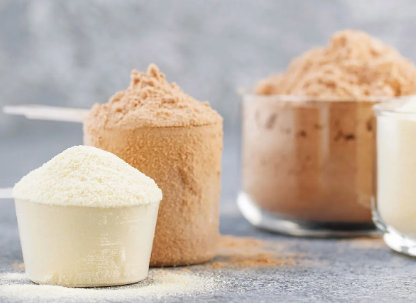
Try consuming the following to meet your needs:
• 3 servings of low-fat or fat-free dairy products
• 3 equivalent servings of protein-rich foods (like fish, beans, poultry, or lean meat) each day.
This provides quality protein sources to help you reach your goals. Grains, especially whole grains, also contribute some protein, but they’re usually not enough to meet your protein needs on their own. These recommended foods also provide protein to help teens build muscle mass.
Carbohydrates and Muscle Nutrition
Carbohydrates are another key food group in muscle nutrition. That’s because carbs are partially converted into glycogen, a stored form of energy in your muscles. This energy helps fuel your workouts. Men and women should consume about half their daily calories from carbohydrates. Focus on high-quality carbs that provide dietary fiber. What are some good options to include in your muscle-gain nutrition plan?
- Whole-grain breads and cereals
- Many dairy products like milk and yogurt also provide carbohydrates. Choose low-fat or fat-free options to reduce saturated fat intake.
- Fruits and vegetables are also excellent choices in a healthy muscle-gain diet.
What’s the best way to schedule carbohydrate intake in your muscle-gain nutrition plan? Our advice is to avoid high-fiber carbs immediately before or during workouts. Save those fibrous carbs for meals further from your training time.
Fat in a Muscle Gain Nutrition Plan
Here’s something important to know: your body relies on fat to fuel muscles during certain types of activity. How much fat you need can vary, but in general, fat should account for 20 to 35% of your total calories.
To maintain good overall health and muscle strength, focus on heart-healthy fat sources. Do you know which ones?
- Include vegetable oils such as olive and canola oil
- Eat avocados
- Include nuts
- Fatty fish like salmon, herring, sardines, and trout offer quality protein and healthy fats
Eating a variety of healthy foods each day can help meet your muscle nutrition needs. For a personalized eating plan, consult a certified muscle-gain nutritionist in your area.
Now you know which activities help maintain and increase muscle in adulthood. But what about muscle-building supplements? Do they really work? It depends on the supplement’s composition and quality. We’ll dive into this next.
Do Recovery Shakes and Supplements Help with Muscle Nutrition?
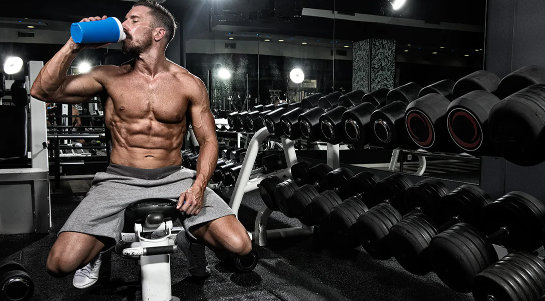
If you’ve followed all the muscle-gain nutrition tips we’ve given, you’ve already done most of the work. But is there anything else that could help? As you know, there are many muscle-building supplements on the market. Are they effective?
Truth is, very few are backed by solid scientific evidence. Most benefits come down to the individual athlete’s experience. However, here are three supplements that are supported by studies. Want to know which ones?
- Protein recovery shakes: They work because proteins help maintain and grow lean tissue as part of a muscle-gain nutrition plan. But for a shake to be effective, it needs a high protein concentration.
- Creatine with carbohydrates: This supplement slightly boosts strength in athletes who respond well to it. Just don’t expect miracles.
- Pre-workouts: These contain caffeine, which gives you an energy boost for intense training.
What’s the issue nowadays? Some muscle-building nutrition brands try to cut costs by reducing the quality of their supplements. For example, it’s common for manufacturers to claim 80% purity on their protein supplement labels. However, many brands fill a large portion of the container with "extra" substances that are not actually protein. This allows them to offer a product at an attractive price, but it won't deliver the quality you're looking for.
Are there reliable brands? Some definitely are, but their muscle mass nutrition supplements will be priced accordingly. You can’t buy 2 kg of pure protein for €30 and expect a high-quality product. We’ve looked into one of the few brands that truly prioritizes label quality. What did they tell us?
PSN Supplements – A Brand for Natural Athletes
On our blog, we talk a lot about the importance of proper nutrition. That’s why it was so timely to investigate PSN, a supplement brand that is 100% committed to natural athletes. What did they tell us about the gym and bodybuilding nutrition market?
The company was founded under the name Phoenix Suplements Nutrition (PSN) and is a sports nutrition store based in Madrid. Its founder, Fernando Muga, had a clear vision for the project from the start: his nutrition stores are designed for natural bodybuilders looking for a trustworthy supplement brand whose contents match exactly what the label says.
Supplements Focused on Quality
As we know, the sports supplement industry is a massive market generating a huge amount of revenue. Unfortunately, this has led to fierce competition among manufacturers to lower costs. In many cases, they offer supplements with very poor purity levels that don’t match what’s on the label. Moreover, large, well-established brands have monopolized the market and often exploit legal loopholes to include questionable ingredients and lower their prices. But is it really worth paying less for a product that won’t give you the muscle nutrition you’re after? As Fernando Muga puts it: "All it takes is 0.5% of pure creatine in a container to legally label your product as ‘Pure Creatine’ due to loopholes. You’re deceiving your consumers, making them believe they’re buying ‘Pure Creatine’ when in reality, you’ve filled 90% of it with standard monohydrate creatine."
Faced with this discouraging reality, Fernando and the PSN Team decided to create a brand that would 100% meet quality standards and purity analysis. They developed products that genuinely support the natural athlete striving for a fit, healthy physique—no tricks, only real ingredients.
Nutritional Supplements Without Misleading Labels

PSN supplements are endorsed by nutritionists, trainers, and competitors. They have a highly pure formulation, free from additives that would compromise product quality—ideal for a muscle gain nutrition plan. Every PSN supplement undergoes lab testing to verify that the listed ingredients are actually present.
The brand produces whey, hydrolyzed, and isolate proteins using the best raw materials available in Spain. For PSN, the athlete’s health comes first. The PSN brand also sponsors various teams involved in combat sports, powerlifting, bodybuilding, and natural fitness.
At DeporTrainer, we’ve partnered with PSN because we believe it’s time to offer athletes the muscle nutrition they’re looking for. Supporting small brands that genuinely care about meeting customer expectations is the first step. Sometimes, well-known brands aren’t necessarily the best or most trustworthy. New manufacturers with good intentions deserve a chance.
If you haven’t heard of PSN yet, we invite you to give them a try—we’re confident you’ll love them. The PSN Team works directly with DeporTrainer. You can order any of their products from our platform and receive them at home in under two days. In addition to the excellent quality and purity we’ve mentioned, their prices are unbeatable!
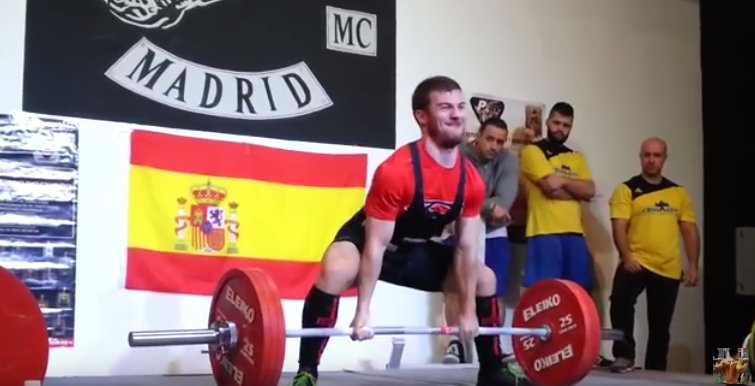
This brand has already shown outstanding results for PSN athletes, and we’re confident it will work great for you too. Whether you’re preparing for a strength or bodybuilding competition or simply enjoy the world of weightlifting, we recommend improving your muscle nutrition with PSN and letting us know how it goes. Visit the DeporTrainer supplement store.

Hire an Online Nutritionist to Gain Muscle Mass
If you want to follow our tips and start gaining muscle on your own, you can do that. Another option is to hire an online nutritionist to gain muscle mass. However, you must ensure that the professional is skilled and specializes in diets for building muscle mass.
Keep in mind that there are many dietitians, but not all of them know how to work with bodybuilders and strength training enthusiasts. A professional dietitian can also help you with a nutrition plan to lose abdominal fat. This will be useful to sculpt your body and show off the muscle you've gained after a bulking phase. If you don’t have time to visit a nutritionist in person, the online mode makes things easier. What’s the secret to nutrition for visible abs? The dietitian will prescribe the right hypocaloric diet so you can define your body from the comfort of your home.

You’ll also love reading:
Or keep reading about nutrition diets to increase muscle mass or nutrition to lose abdominal fat.
10 Nutrition Tips to Bulk Up Muscle Mass
We’ve explained the basics of nutrition and sports nutrition supplements for gaining muscle mass. And we couldn’t go without giving you another 10 awesome tips to help you fully achieve your goals.
Both bodybuilders and coaches, as well as a good muscle mass nutritionist, will tell you that bodybuilding is more than 50% nutrition. We agree—especially for beginners who need a nutrition plan for ectomorphs. Beginners or those returning to the gym after a break can expect big gains in strength and mass with a regular training program—but not without a solid muscle-building nutrition plan.
In short: the more serious you are about your muscle-building nutrition, the better your results will be. In fact, if you explore the research on weightlifting, you’ll quickly find that relatively little has been studied about training techniques to gain muscle and strength. However, there are tons of studies on the effects of diet and supplements. These studies show that paying attention to macronutrients (proteins, carbs, and fats), calories, meal timing, and certain supplements has a huge impact on your gains.
That said, since we know you don’t have time to dig it all up yourself, we’ve narrowed it down to 10 basic rules for nutrition and supplements that every beginner should learn now and follow forever. Stick to these rules and follow your lifting program. Soon, that “beginner” label won’t apply to you anymore.
Tip 1: Focus on Protein

Consume at least 1.4 grams of protein per kilogram of body weight daily. Protein provides amino acids (these are like the building blocks of muscle protein). Although the recommended daily amount is set at less than a gram per kg for the average person, research shows that athletes—especially those focused on muscle and strength—need about double that amount.
In fact, beginners should aim to consume around 1.8 grams of protein per kg of body weight daily during the first six months of training, when muscles respond most quickly to exercise. For someone weighing 80 kg, that means 144 grams a day initially and a minimum of 120 grams per day later on.
Also, let’s remember that eating plenty of protein is helpful when trying to lose weight and get lean. Protein is among the best food supplements for burning belly fat because it satisfies hunger and preserves muscle mass.
The proteins you choose should mainly come from lean animal meats like chicken, turkey, beef, fish, eggs, and dairy. These are the most complete protein sources, meaning they provide all the essential amino acids your body can’t produce on its own.
2. Carbohydrates in a Nutrition Plan for Ectomorphs
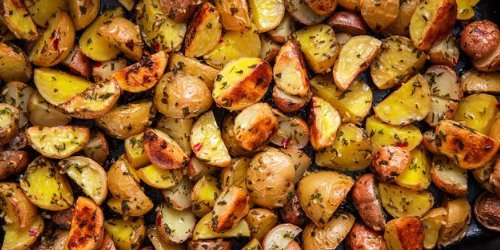
Consume around 6 to 6.5 grams of carbohydrates per kilogram of body weight every day. Protein is the most important macronutrient for muscle growth, but carbohydrates come in a close second. Carbohydrates are stored in the muscles as glycogen. They keep muscles full and large and fuel your workouts. To gain mass, a muscle-building nutritionist would recommend a beginner weighing 80 kg to consume between 360 and 540 grams of carbohydrates daily.
For most meals, use slow-digesting carbohydrate sources such as whole grains, oats, sweet potatoes, beans, fruit, and vegetables (for other times of the day, see tip 7).
Remember that fat loss diets and muscle-building diets are different. In a weight-loss nutrition plan, carbs are limited, while in a muscle-building one, they are increased.
3. Don't Avoid Fat: Any Muscle Gain Nutritionist Will Tell You This
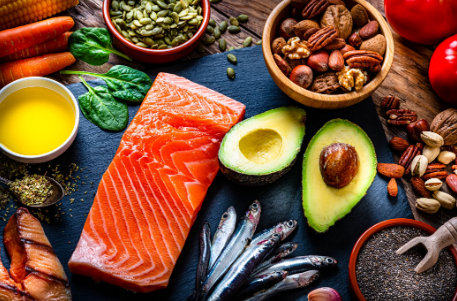
Between 20% and 30% of your total daily calories should come from fats. Sedentary people are often advised to eliminate saturated fats, but that may be going too far. About 5% to 10% of your fat calories should come from saturated fats. Diets higher in fats (especially those richer in monounsaturated and saturated fats) seem to better support testosterone levels than low-fat diets. Keeping optimal testosterone levels (don’t forget) is crucial for building muscle mass and strength, and even for avoiding fat gain.
Choose red meats like steak and ground beef to get your saturated fats. These foods also provide quality protein. High-protein diets to build muscle mass are effective. Eat avocados, nuts, olive oil, olives, and peanut butter for monounsaturated fats; and fatty fish (salmon, trout, catfish), flaxseed oil, and walnuts as great sources of essential omega-3 polyunsaturated fats.
4. Calories Matter in Nutrition for Muscle Gain
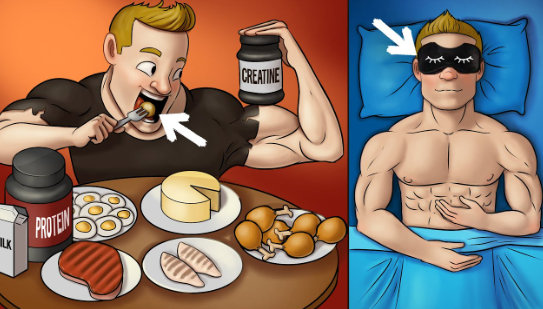
To build muscle, consume 44 calories per kilogram of body weight per day. You must maintain a positive calorie balance (consume more calories than you burn) to gain quality muscle mass. If you burn more calories than you consume (a negative balance), your body enters a conservation mode and won’t support new muscle growth.
Once you've established how many calories you need, you can determine your macronutrient ratio (your intake of protein, carbs, and fats).
A person weighing 80 kg should consume around 3600 calories daily. Based on tips 1, 2, and 3, the ideal ratio would be:
- 20% to 30% of calories from protein
- 40% to 60% from carbohydrates
- 20% to 30% from fats
4.1. Nutrition Table for Muscle Gain or Cutting
- If you're following a nutritionist-approved muscle gain plan, you’ll need to eat a calorie surplus.
- If you're on a fat-loss nutrition plan, you’ll need to eat fewer calories.
The difference between a bulking diet and a cutting plan lies in the total calorie intake. However, the macronutrient ratio remains mostly the same in both cases. Keep in mind that protein and carbs contain 4 calories per gram, while fats contain 9.
Let’s look at an example of a nutrition table for muscle gain and cutting, assuming an 80 kg person.
| Bulking Phase | Cutting Phase | |
| Calories | 3450 | 2550 |
| Protein (grams) | 259–302 | 191–223 |
| Carbohydrates (grams) | 474–518 | 351–383 |
| Fat (grams) | 58–77 | 43–57 |
If you weigh 80 kg and want to gain weight in muscle, you’ll need to follow the bulking phase. If you're aiming to lose fat and define muscles, follow the cutting phase.
So, what's the perfect nutrition plan to burn fat and build muscle? First, go through a bulking phase for at least 12 months (aiming to gain about 10–12 kg). Then, follow a cutting phase for 2–3 months to lose fat and highlight the muscle you’ve built.
These are general guidelines. It’s best to consult a muscle-gain nutritionist who can determine your individual needs based on your goals. A professional will ensure your diet is nutritionally adequate.
4.2. Do Low-Calorie Diets Help You Gain Muscle?
No. Low-calorie (or hypocaloric) diets are useful for reducing fat and defining muscles. However, they don't increase muscle size. To gain size, you need a high-calorie (hypercaloric) diet. Therefore, low-calorie diets do not work to build muscle.
However, if you're following a low-calorie diet to lose weight, you’ll need to support your muscle nutrition with protein. A calorie-deficit diet must be high in protein to preserve as much muscle mass as possible while losing fat.
5. Eating frequently promotes better nutrition
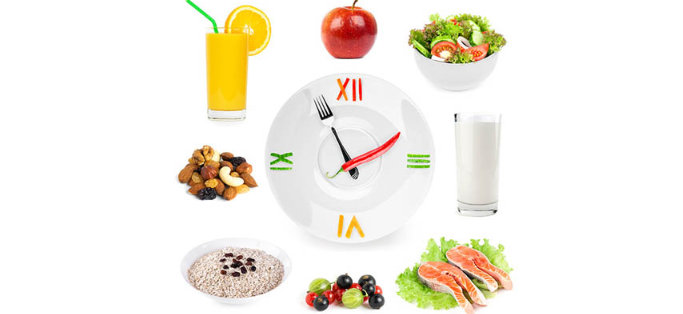
Make a meal containing quality proteins and carbohydrates every 2-3 hours. This will ensure a constant supply of energy and amino acids, and support muscle growth throughout the day. This is the best way to nutrition for definition. Eating frequently will help you gain mass and stay lean. The key is to make each meal about the same size. If you overeat with a 1200-calorie lunch, you’re less likely to eat 2-3 hours later and gain the proper weight. If by the end of the day you've exceeded the calories your body can process, those calories will be stored as body fat. Try to eat at least five or six meals a day. For a person weighing 80 kg, that would be 500-600 calories per meal.
Remember, to achieve a muscle mass increase with nutrition, you need to eat more than usual. This is best done by spreading multiple meals throughout the day.
6. Don’t underestimate the power of a shake for muscle recovery
![]()
Before and after training, consume at least 20 grams of protein in the form of a shake. You should follow protein diets to increase muscle mass. Although shakes are supplements, we like to think of them as important meals consumed at critical times of the day. Your diet should consist mainly of whole, unprocessed foods. However, sometimes a protein shake is a much better option. For example, you can have a shake 30 minutes before your workout. It will prepare your muscles for the upcoming training session and jump-start the muscle recovery process. You can have a shake with 20 grams of whey protein, or a mixture of whey and casein along with about 40 grams of a slower-digesting carbohydrate (see advice 7). Then, in the 60 minutes immediately after training, take another 20-40 grams of liquid protein (mix it with water for convenience) and 60-100 grams of faster-digesting carbohydrates (again, refer to advice 7). This is the best supplementation for gaining muscle mass.
7. Nutritionist advice for gaining muscle mass: Eat good carbohydrates at the right time

Eat a slow carbohydrate 30 minutes before training and mainly consume fast carbohydrates after training. As mentioned in advice 2, you should select slow-digesting carbs for most meals, even before training. Research shows that when athletes eat slow-digesting carbohydrates, they not only have more energy and less fatigue during exercise, but they also burn more fat while working out and feel less hungry throughout the day. Good slow carbohydrates for muscle nutrition include fruit, whole wheat bread, and oats.
After training, choose fast-digesting carbohydrates like white bread, a roll, baked potatoes, or a sports drink. They will increase levels of the anabolic hormone insulin, which transports the carbohydrates you eat to muscle cells where they will be stored as glycogen for your next workout. Insulin also helps amino acids enter muscle cells to build muscle protein (remember the importance of protein-rich diets for gaining muscle mass). Insulin is crucial for delivering creatine to muscles (see advice 9) and boosting muscle protein synthesis, one of the main processes for muscle fiber growth. Normally, it’s desirable to keep insulin levels controlled for various health reasons. However, immediately after a tough training session is a time when spiking insulin levels is beneficial.
8. Add a meal before bed to your custom diets for gaining muscle mass

Before going to bed each night, consume 30-40 grams of a micellar casein protein shake or 1 cup of low-fat cottage cheese, along with 2-3 tablespoons of flaxseed oil, 2 ounces of mixed nuts, or 2-3 tablespoons of peanut butter. When you sleep, you essentially fast for 7-9 hours (or however long you sleep). With no food available, the body turns to its muscle fibers for amino acids to fuel the brain. For individuals looking to get bigger and more defined, this isn’t ideal. The answer isn’t to sleep less, but to eat the right foods right before bed. Slow-digesting proteins and healthy fats are the best choice. Foods with these nutrients help slow digestion and provide a steady supply of amino acids as fuel. This minimizes the tendency for the body to use muscles as energy. Casein, the main protein in milk, is a good option. You can take it in a protein shake or in a cup of low-fat cottage cheese. All healthy diets for gaining muscle mass include a meal before bed.
9. Use carbohydrate-loaded creatine to support muscle mass nutrition

Include 3 to 5 grams of creatine in your pre and post-workout shakes for muscle recovery. One of the most effective supplements you can buy is carbohydrate-loaded creatine. Many scientists, doctors, and nutritionists agree that creatine works well for most athletes, regardless of their age or gender. After hundreds of studies on this supplement, the consensus is that it’s not only effective but also safe. Taking monohydrate creatine, ethyl ester, or any other form can help you gain some pounds of lean muscle, increase strength in the gym by 10%, and significantly improve muscle pump during training. All of this without side effects, and in just a few weeks.
10. Use Beta-hydroxy-beta-methylbutyrate (HMB) in your meal plan for gaining muscle mass
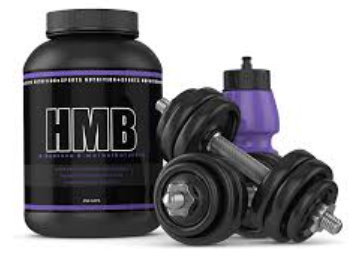
Take 1 to 3 grams of HMB with your morning meal, before and after workouts, and before bed, during the first three months of training. In addition to creatine, which is good for bodybuilders of all experience levels, another great supplement for beginners is HMB. It’s a metabolite of the branched-chain amino acid leucine. HMB prevents muscle breakdown and stimulates muscle growth, especially in beginners (research shows that HMB’s effectiveness is less significant for advanced bodybuilders). After three months, switch to 5-10 grams of leucine. This supplement is good to include in nutrition plans for ectomorphs.
Thank you for visiting Depor Trainer!
The final takeaways are that you need a good amount of proteins, carbohydrates, and fats from good foods if you want to follow healthy diets for gaining muscle mass. Supplements like creatine and whey protein in muscle recovery shakes can help. After a few months of following a high-calorie diet to gain mass, you might want to shift your nutrition for burning belly fat.
Some people may benefit from working with an online nutritionist for gaining muscle mass. The dietitian will establish a weekly nutrition plan for muscle gain. Afterward, they will design a nutrition plan to burn belly fat without hunger and without putting the body at risk. Whether you decide to hire a professional or do it yourself, don’t forget the importance of muscle nutrition to achieve your goal of being fit and having the body you want. Any questions?


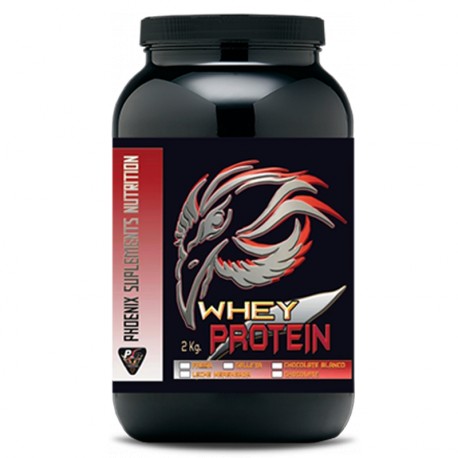
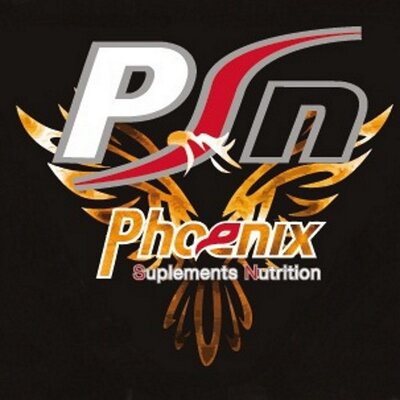
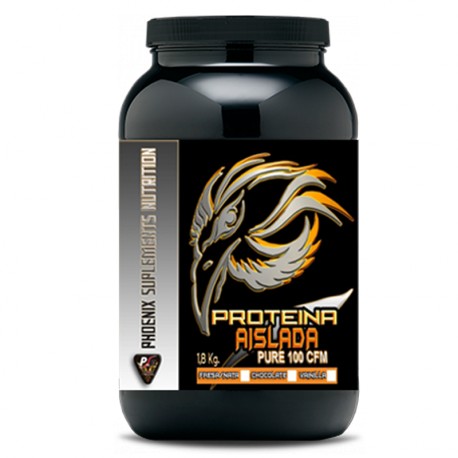

![LAS MEJORES MÁQUINAS DE MUSCULACIÓN PARA PRINCIPIANTES [GUÍA 2025]](/modules//smartblog/images/no-home-small.jpg)
![HOW TO BUILD A HOME GYM ON A BUDGET [2024 GUIDE]](/modules//smartblog/images/296-home-small.jpg)


